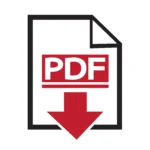AUTHOR:
Tomasz Białobłocki
ABSTRACT:
The article analyzes the features of theorization, verification and structuring of regionalism and regionalization as a possible basis for politicization of ethnicity in Ukraine in 1991-2013, i.e. before the Russian-Ukrainian war, in particular in its local phase since 2014 and in large-scale phase since 2022.This is done at the background of the statement that aggressive Russia has always proceeded from the ideological and propagandistic (including instilled in Ukraine) assumption that Ukraine is not a united and consolidated country, because it has historically been characterized by regionalism and regionalization, which Russia expects should were the basis for the politicization of ethnicity and the ethnolinguistic issue in Ukraine in 1991-2013. However, as the political and military practice of 2014-2022 showed, this calculation turned out to be largely erroneous and incomparable with the electoral, religious, linguistic, ethnic and other socio-political cleavages that historically characterized (and significantly were overestimated by Russia) post-Soviet Ukraine. To demonstrate this, various approaches to understanding and organizing regionalism in Ukraine were proposed, including two-component, four-component, eight-component, etc., each of which was structured and characterized. The author argued that any attempt to use the idea of regionalization of Ukraine – especially in its twofold logic (divided into “West” and “East” or the Right Bank and the Left Bank relative to the Dnipro River) – in the real socio-political process in this country, but especially in the context of the Russian-Ukrainian war, which began in 2014 and intensified on a large scale in 2022, failed. However, this does not mean that the issue of regionalism and regionalization in Ukraine should not be continued and developed, but in a completely different way and direction, especially in the context of European integration of this country.
DOWNLOAD FULL ARTICLE:

